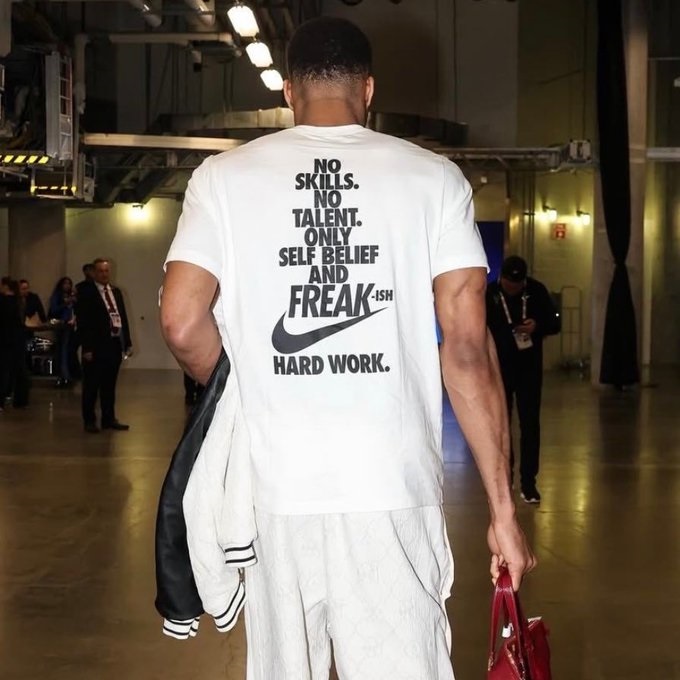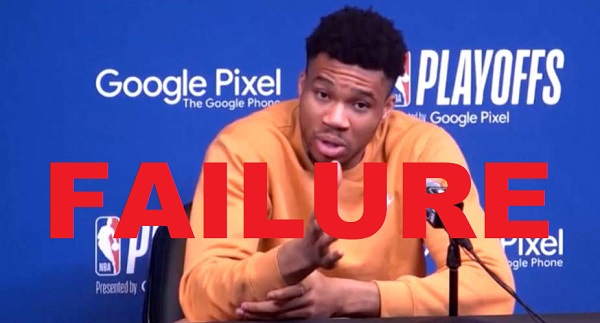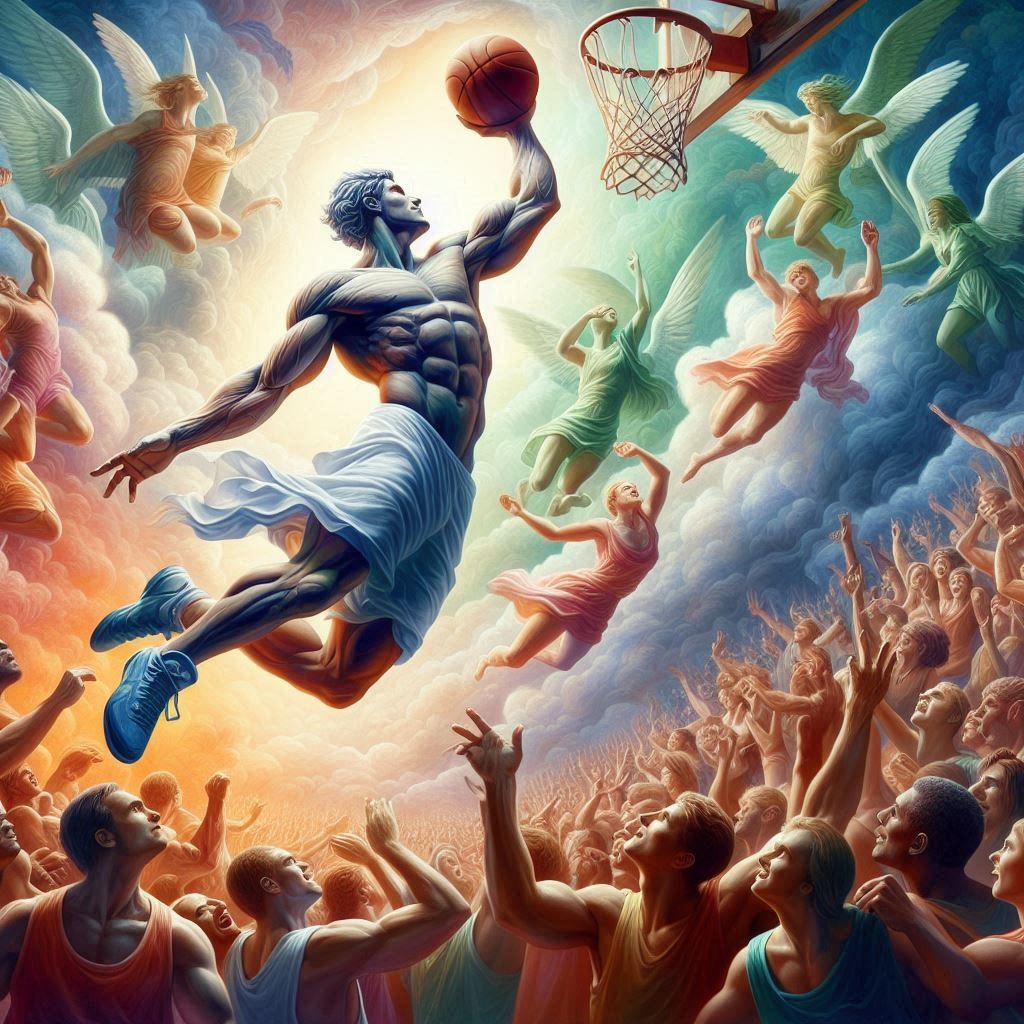Beyond his incredible athleticism and inspiring rise from humble beginnings, fans often notice the number he proudly wears on his jersey: 34. While jersey numbers can sometimes be arbitrary, Giannis claims the choice of 34 carries deep personal significance tied to his family and his journey.
The Family Connection: A Tribute to His Parents

Giannis Antetokounmpo’s story is one of resilience, family, and loyalty, and his jersey number is a direct reflection of that. He has openly shared that he chose 34 as a tribute to his parents, Charles and Veronica Antetokounmpo, who were born in 1963 and 1964, respectively. When you combine the last digits of their birth years—3 from 1963 and 4 from 1964—you get 34. This simple yet heartfelt gesture showcases Giannis’ deep gratitude for the sacrifices his parents made to give him and his brothers a better life. It’s also kinda dumb and possibly retrospectively applied to impress. After all his personal story is a big part of his personal brand. After all using 1964 and 1963 he could have picked pretty much any jersey number. Why just the last digit? Why the 3 first? He could just as well have number 43. It makes zero sense. Here is what AI says:

Born in Athens, Greece, to Nigerian immigrants, Giannis grew up in a tight-knit family facing significant challenges. His parents worked tirelessly, often selling goods on the streets to provide for their five sons. Charles and Veronica instilled in Giannis a sense of hard work, perseverance, and unity—values that have defined his career and personal life. By wearing 34, Giannis says keeps his parents close to him on the court, honoring their legacy and the foundation they built for his success.
A Number Rooted in His Origin Story

The choice of 34 isn’t just a numerical nod to his parents’ birth years; it’s also a symbol of Giannis’ origin story. Before he became an NBA superstar, Giannis was an unknown teenager playing in Greece’s lower basketball leagues. His family’s immigrant background and financial struggles shaped his early years, and he didn’t even pick up basketball seriously until his mid-teens. The number 34 ties him to that past—a reminder of where he came from and the people who supported him along the way. Or at least that’s what he says! Because it doesn’t really make much sense.
When Giannis was drafted by the Milwaukee Bucks in 2013 as the 15th overall pick, he brought with him not just raw talent but also a unique perspective shaped by his upbringing. The number 34 became a way to carry his family’s journey with him into the NBA, grounding him as he transitioned from a lanky prospect to a global icon.
Consistency Across His Career
Giannis has worn number 34 consistently throughout his professional career with the Bucks. This consistency speaks to his character—loyal, steadfast, and unwavering in his principles. Either that or he is too lazy to start over at a new franchise. While some athletes might choose a number for its flashiness or cultural cachet (think Michael Jordan’s 23 or LeBron James’ 6), Giannis’ choice, if in fact it was a choice, tries to point to his brand.
Interestingly, Giannis didn’t wear 34 during his early basketball days in Greece with Filathlitikos, where he sported number 13 instead or number 4. However, once he arrived in Milwaukee, he settled on 34, and it’s been a constant ever since. The Bucks have embraced this number as synonymous with their franchise star, and it’s now etched into the team’s history, especially after Giannis’ iconic 50-point performance in Game 6 of the 2021 NBA Finals to clinch the championship.
A Symbol of Unity for the Antetokounmpo Brothers
Family extends beyond just his parents for Giannis—his brothers also play a significant role in his life and career. Thanasis, Kostas, and Alex Antetokounmpo have all pursued basketball, with Thanasis even joining Giannis on the Bucks roster. While his brothers have worn different numbers (Thanasis wears 43, for example), Giannis’ 34 serves as a unifying thread for the family’s collective journey in the sport. It’s a subtle way of representing the Antetokounmpo legacy, which has grown from the streets of Athens to the NBA hardwood. Kostas wears number 37. Alex wears number 29. Go figure. They either don’t share the same passion for family loyalty or just don’t bullshit as much as Giannis.
In interviews, Giannis often speaks about the importance of family, crediting his brothers for pushing him and keeping him grounded. The number 34, in a way, encapsulates that brotherhood, linking his individual success to the shared dreams and struggles of the Antetokounmpo clan.
The Cultural Impact of 34
Giannis’ rise to stardom has made number 34 more than just a jersey number—it’s a symbol of inspiration for fans, especially those from immigrant backgrounds or underdog stories. The “Greek Freak” nickname and his larger-than-life personality have turned 34 into a recognizable brand. Bucks fans proudly wear 34 jerseys, and young players around the world look to emulate the two-time MVP who turned adversity into triumph.
It’s true that the number 34 has been worn by some of the NBA’s most iconic players. “Shaq” wore number 34 during his time with the Los Angeles Lakers, where he won multiple championships. “Sir Charles” made the number 34 famous during his time with the Phoenix Suns. Hakeem Olajuwon,
“The Dream” wore number 34 with the Houston Rockets, where he won his NBA titles. Also Ray Allen, Wendell Carter jr, even Elgin Baylor wore it once for a season. But sure, you can choose to believe that Giannis picked it because of his parents if you prefer…
Did He Have Other Options?
When Giannis joined the Bucks, it’s worth noting that jersey numbers aren’t always a free-for-all choice—teams have retired numbers or current players occupying certain digits. For example, the Bucks have retired numbers like 1 (Oscar Robertson), 8 (Marques Johnson), and 32 (Brian Winters), but 34 was available. Giannis may well have had other numbers in mind, but he’s never publicly wavered from his commitment to 34. It’s unlikely that the personal significance of the number made it his top choice from the start, and the Bucks were happy to oblige their future cornerstone. He probably just made up the story retrospectively. It’s a bit like when you get a new SIM card with a strange number and you try to make sense of it in order to remember it. “Oh, yes, it’s my birthday backwards except the second and fifth digits are different!”
More Than Just a Number? It doesn’t matter anymore
So, why does Giannis wear 34? It’s a tribute to his parents, Charles and Veronica, whose birth years inspired the choice. It’s a link to his roots in Greece and the sacrifices his family made. It’s a constant in a career marked by extraordinary growth, and it’s a symbol of the unity that defines the Antetokounmpo family. For Giannis, 34 isn’t just a number—it’s a story, a legacy, and a reminder of what drives him every time he steps onto the court.
Then again, it’s probably 100% bullshit. His kids are called Liam, Maverick and Eva. In many Nigerian cultures it is important to honour ancestors by naming children after parents or other relatives. This is a way to keep the family lineage alive and to pass on positive qualities. This practice is very common in many ethnic groups, including the Yoruba and Igbo people. So Giannis must be related to his Ford Maverick because he sure didn’t think to name them after his parents!

As Giannis continues to build his career, number 34 will undoubtedly remain a defining part of his identity. For fans, it’s a number that represents not just a basketball player, but a man who turned his family’s dreams into reality—one dunk, one block, and one heartfelt tribute at a time. It also shows just how gullible his fans are. More than likely the selection of number 34 was completely random when he arrived at the Bucks and he totally made up the meaning he now says it has. But that’s what his fans like and they are more than willing to lap up any stupid story he comes up with!












